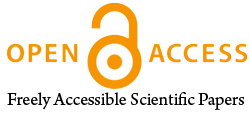Abstract Volume:12 Issue-9 Year-2024 Original Research Articles
 |
Online ISSN : 2347 - 3215 Issues : 12 per year Publisher : Excellent Publishers Email : editorijcret@gmail.com |
This study explores the use of blended learning to enhance the oral proficiency of advanced EFL students in Benin. The objective is to demonstrate the efficacy of blended learning in improving students’ oral skills. A quasi-experimental mixed-method approach was adopted, using a combination of experimentation, questionnaires distributed to 20 EFL teachers and 400students in the Littoral region of Benin, interviews, and classroom observations. Data collected were analyzed using Excel 2019 and SPSS version 25, with results presented in figures and tables to illustrate frequencies and percentages. The findings highlight the challenges faced in teaching speaking skills, as well as the advantages and obstacles associated with blended learning. Importantly, the results indicate that the application of blended learning significantly enhances students’ oral proficiency. The study also outlines several prerequisites necessary for the effective implementation of blended learning in the Beninese secondary schools context. This research, therefore, provides valuable insights into the potential of blended learning as a tool for improving language proficiency in EFL students.
How to cite this article:
Sourou Corneille Teba. 2024. Using Blended Learning to Improve Beninese EFL Advanced Students’ Oral Proficiency: Case Study of Some Secondary Schools in Littoral Region.Int.J.Curr.Res.Aca.Rev. 12(9): 20-31doi: https://doi.org/10.20546/ijcrar.2024.1209.003



Quick Navigation
- Print Article
- Full Text PDF
- How to Cite this Article
- on Google
- on Google Scholor
- Citation Alert By Google Scholar
